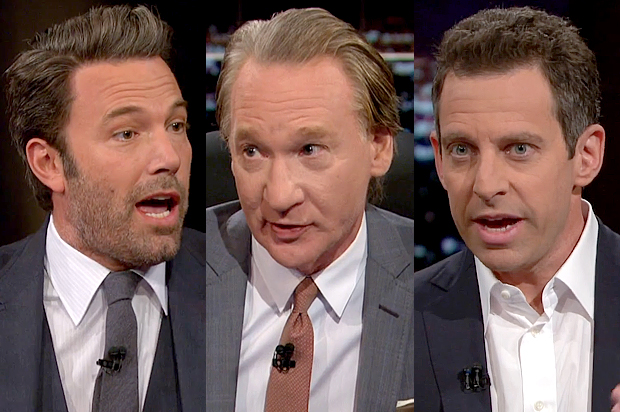
Twenty-three percent of young people in the UK currently blame the media for the creation of anti-Islamic sentiments, and after watching Bill Maher’s HBO show last week, it is easy to see why this view exists. Maher’s broad and misrepresentative declarations against the religion reflects the wider pernicious growth of Islamophobia in the UK – in a recent poll, one in four Britons admitted to distrusting Muslims, and would go so far as to say the country would be “better off” without them. However, what should concern us the most, is the hosts’ suggestions that such views were acceptable in the name of ‘liberalism’, a dangerous attempt to manipulate an ideology for Maher’s own intolerant ends.
Since its inception, liberalism as an ideology has been associated with religious tolerance, whilst supporting the need for a secular state. Of course, nations such as Saudi Arabia – an absolute monarchy which strictly adheres to Shari’a law – are glaringly illiberal. Maher fails to draw a distinction between states and the majority religion though, as he refers to the “Muslim world” without any clear precision. This represents a growing trend for cultural and regional politics to be confused with the religions that citizens of illiberal Middle Eastern countries adhere to. Maher’s oversimplified and critical viewpoint fails to note Muslim countries with parliamentary democracies – Bangladesh, Indonesia and Turkey, proving the connection between Islam and illiberalism to be a flawed judgment. “Equality for women” is presented as a liberal principle, which Islam contradicts, an unjust assumption given that Muslim majority countries have elected female heads of state. This is something the USA, leader of the free and liberal world, is yet to accomplish.
Arising as an unlikely hero, Ben Affleck single-handedly exposes Maher and atheist author Sam Harris’ ‘liberal’ arguments to be a fallacy. Affleck points out that both Maher and Harris are entirely unsuited to judging the religion given that they are not able to legitimately represent the “codified doctrine of Islam”. That Harris declares Islam to be the “motherlode of bad ideas” is wildly ignorant, and panders to a wider public where Islamophobia is on the rise. Maher and Harris, attempting to sound authoritative and astute, instead appear ill-informed as they argue that freedom of speech and freedom to practice any religion is absent not in illiberal countries, but Muslim ones. This neglects the fact that Tunisia, with 8% of the populace identifying as non-Muslim, has laws against proselytizing. Indeed, Muslim scholars have long stressed that forbidding someone from changing their religion is against the Islamic principle that people cannot be forced to practice religion. Maher’s argument that Muslims are unable to do this “without fear of violence” exposes an inability to distinguish between state practices and religious doctrines.
Indeed, it is clear that Maher and Harris’ argument against Islam solely stems from the practices of nations where human rights are disregarded, and where liberalism is clearly absent in the first place. The frequent view that women are oppressed is predominantly based on Saudi Arabian practices – it is the only Muslim nation where women are not allowed to drive. Such laws are worthy of criticism, but Maher continually suggests this inequality is characteristic of the religion, not the region. It seems that not only the religious toleration, but any notion of religious understanding built into the idea of liberalism is shown to be lacking in Maher’s woeful attempt to stand up for ‘liberal ideals’.
It is unjustified to use liberalism as a means to attack and generalise a religion. Maher’s argument is narrow and misjudged. But worst of all, Maher’s uneducated view that liberalism should endorse religious intolerance sets a dangerous precedent, whereby an ideology can be mishandled by bigots, using the practices of illiberal countries to brand the religion of 1.6 billion an ‘evil’ one. Islamophobia needs to be tackled and rebranded as fear of extremism and fanaticism, not normalised or made acceptable by Maher’s attempts to vindicate such prejudice as compatible with liberalism.


